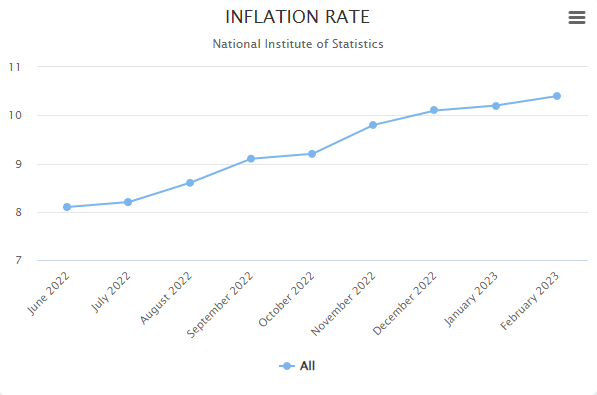From a political coup, and migration to high inflation, Tunisia sure is going through its worst economic and political lows
Tunisia, the northernmost country in Africa well-known for its sunny weather, gilded beaches, and distinctive blend of cultures is now a captive of several intersecting crises. From a political coup, and migration to high inflation, and unemployment, Tunisia sure is going through its worst economic and political lows. Analysts expect that the crisis might widen in the coming days with necessities like food and water supply getting affected. Why is Tunisia on the verge of a twin crisis?
The Political Uncertainty
Kais Saied, the current president of Tunisia had consolidated power through a constitutional coup in 2018. Kais Saied fired the country’s prime minister and suspended the parliament and justified the act by criticizing the government’s poor handling of the pandemic. Democracy in Tunisia is a fairly new thing. Nationwide protests against the authoritarian regime helped the country transition towards a democratic government but Saied’s move further decelerated the progression. Saied, since 2019, had a conflict with Tunisia’s parliament over the country’s post-revolution separation of powers. Several public figures including politicians, protest leaders, and union officials who criticized Saied were arrested in violent raids resulting in nationwide protests as the citizens feared for it to be a return to autocracy.
A Failing Economy
The economic crisis in the country began with the hard-biting effects of the Covid-19 pandemic. The inefficient handling of the pandemic pushed the economy to ruins leaving people struggling to fulfill their necessities. This called for a nationwide protest which resulted in the power play of Kais Saied suspending the parliament and firing the country’s prime minister. This massive change in the political structure of the country did little to improve the economy. Even after the rest of the world slowly began to recover from the pandemic effects, Tunisia still struggled to keep up.
The Tunisian economy is once again at a turning point with sky-high inflation and an increasing youth-unemployment rate. The annual inflation rate in Tunisia rose for the 17th straight month reaching 10.4 percent in February 2023, which is the highest rate since 1984. In January, the recorded inflation rate was 10.2%. The Tunisian central bank, to combat inflation implemented an 8% interest rate hike in January which received several criticisms from the government. Samir Saeed, Economy Minister, stated that the interest rate hike would have negative repercussions. The youth unemployment rate, which was falling from a high level in 2021, seems to be rising again.

Due to the economic ruins, a large number of Tunisian citizens are migrating risking their lives. According to the UN, nearly 12,000 people have reached Italy from Tunisia so far this year compared to 1,300 from the previous year. Along with migration, an increased rate of fatalities from shipwrecks and other means is also being reported. Saied in a speech mentioned that migration posed a great threat to the nation.
Saied’s administration is also finding it hard to improve the national budget short of $2 billion, and the talks with the International Monetary Fund (IMF) for the release of a loan have been stuck for several reasons including the new reforms introduced displeasing the powerful labor union UGTT. The Union also warned about having tougher days ahead for the Tunisian economy. The Union and several other organizations have denied the 2023 budget as intolerable as it introduces new taxes at a time when Tunisian citizens are struggling with the prices of necessities.
The economy is also marked by weak growth. The country currently notes a record trade deficit and a not-so-great budget deficit which could worsen during the first quarter of this year with falling external debts. Many establishments in the country are facing an economically hard time and are on the verge of bankruptcy. The country has a public debt of nearly 35.5 billion dollars and for 2023, the debt service amount is estimated to reach $2.1 billion, which represents a third of the country’s foreign exchange reserves.
What’s next for Tunisia?
Italy wants IMF to provide Tunisia with a $1.9 billion loan, as there is a general fear that without the aid the country would be destabilized. The IMF aid, if approved would help Tunisia to survive what could be called one of its worst economic times. Major structural reforms must be brought in to lend the economy a helping hand from the steep lows. NATO secretary general Jens Stoltenberg mentioned about its preparation to aid if an economic collapse happens in Tunisia. NATO had also spoken about working on preventing the influx of new immigrants to European countries.